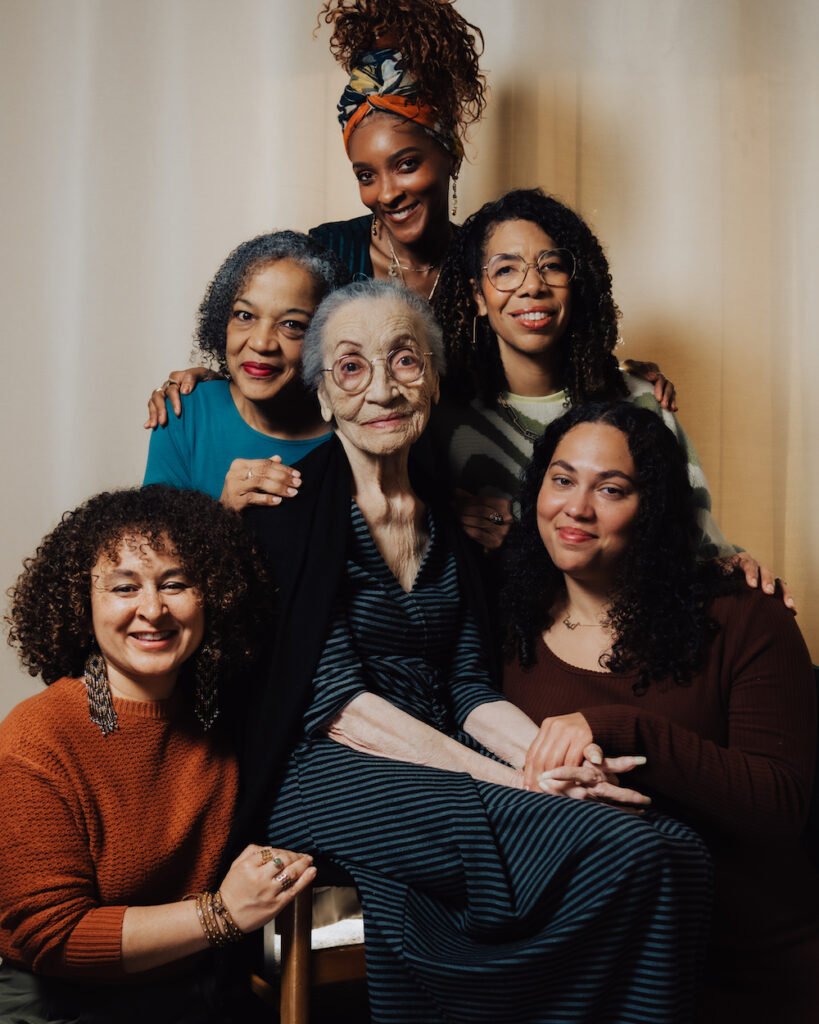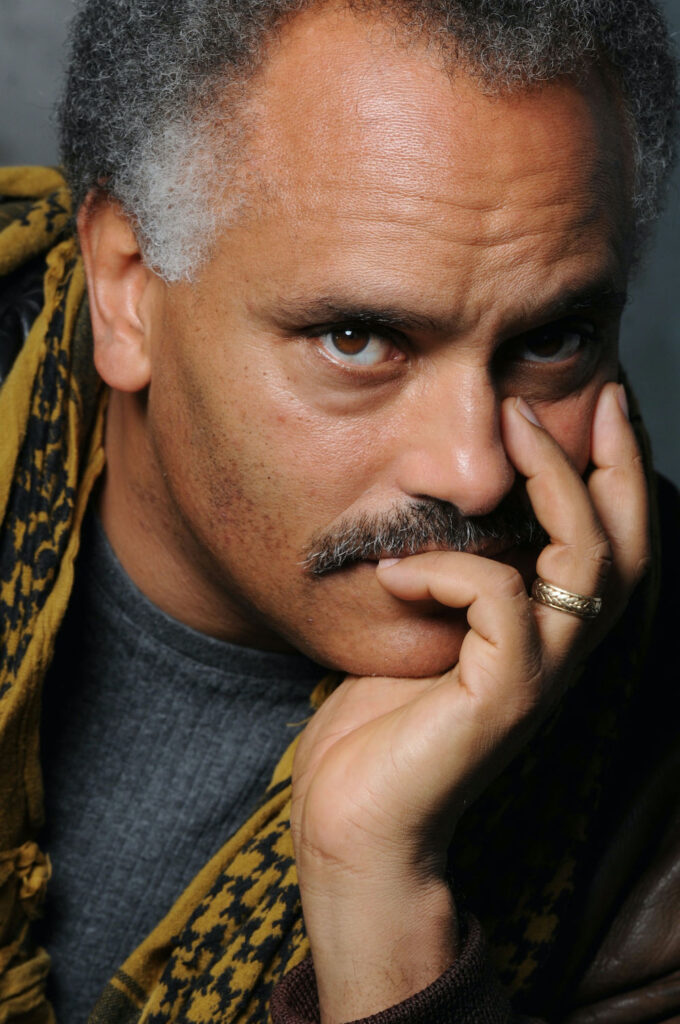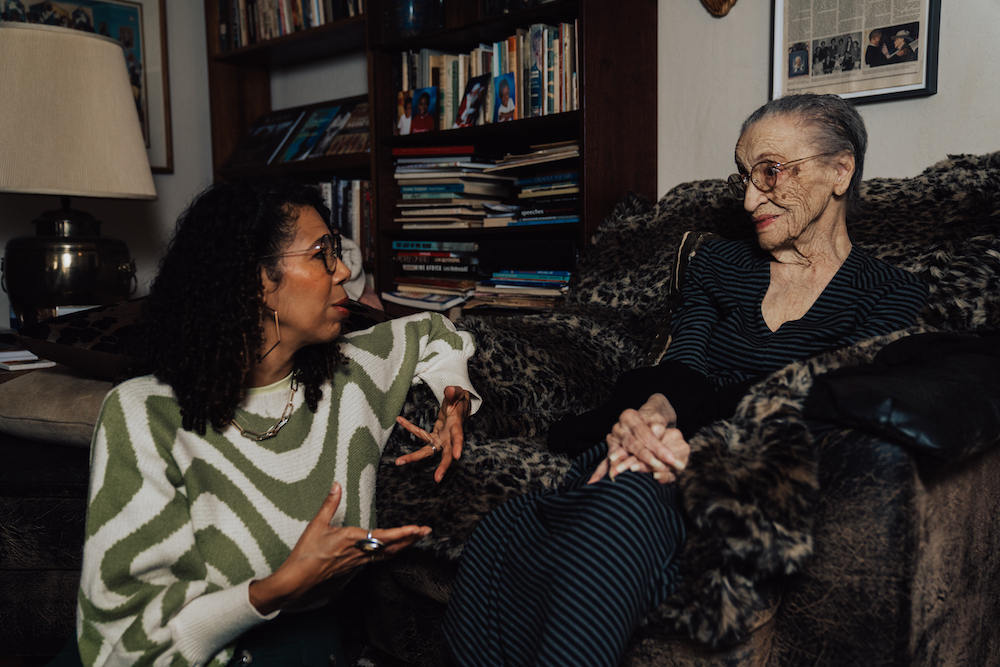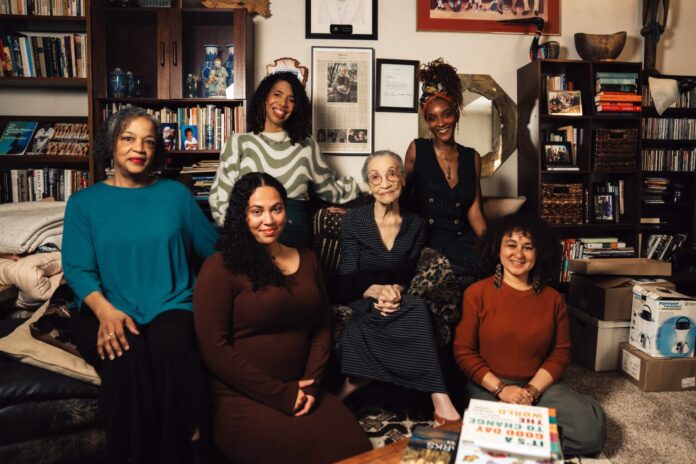The handful of times I saw Betty Reid Soskin in person leave me eagerly anticipating the world premiere of the musical theater adaptation of her writings on her life (which runs Fri/29-April 13 at Z Space). The first such instance was at an International Women’s Day conference in 2014, where Soskin was among the keynote speakers, honored in recognition of her activism and service as the oldest working ranger in the National Park Service. As I entered the venue, a performance hall at a private college, a group of undergrads were teaching her a line dance. Never mind that her 92 years quadrupled the lifespan of her 18 and 19-year-old instructors—she proved an astute student, kicking and spinning with fluidity.
Jump forward to 2018, when our paths crossed once more at an East Bay event for her memoir, Sign My Name to Freedom. The book, whose title is drawn from a song she wrote in 1964, is based on blog posts that Soskin has written over the years. It chronicles how her great-grandmother was “born into slavery” in 1864, parented 13 children, and lived to be 102. Soskin’s father was an eminent builder in New Orleans, whose reluctance to let a white man call him by a nickname in a business setting by a white man resulted in the family being driven out of town. And then there’s her favorite memory of all; being invited as a guest of honor to the inauguration of Barack Obama as the United States’ first African American president. There, in the shadow of the Lincoln Memorial, she recalls “feeling fluorescent.”

The stories put her power for endless reinvention on display: Soskin has been a World War II defense worker, singer-songwriter, mother, and suburban wife. Moving to Walnut Creek in 1952, she and her first husband, Mel Reid, were the only Black homeowners in the all-White enclave, and the targets of overt racism. The duo were the owners of Berkeley’s only Black-owned record shop, and Soskin’s work as lead merchant helped save it from bankruptcy. Once married to her second husband, UC Berkeley psychology professor William Soskin, she became a field representative for the State of California, and took on the public mantle of social justice activist. Soskin worked to establish Richmond’s Rosie the Riveter/WWII Home Front National Historical Park and, until she stepped away at age 102, was a daily fixture at its museum, offering visitors unique, first-person introduction to the area’s history, reminding people of the vital role African American workers played at the former Kaiser shipyard.
Other chapters of Sign My Name tap into her Creole, Cajun, and African American ancestries, her witnessing of how “the hoods come off” while KKK-style white supremacy continues. She mourns the young generations of Black and Brown children growing up under “the weight of low expectations”.
It all makes fertile ground for the stage version of Sign My Name to Freedom, which will be presented by San Francisco Bay Area Theatre Company. The script was written by playwright Michael Gene Sullivan and Soskin’s original music and lyrics are woven into its dialogue. Directed by Elizabeth Carter, the play brings together a creative team the includes concept creator Jamie Zimmer, music supervisor Angie Doctor, music director Daniel Savio—and features actors playing no less than four Soskins: Little Betty, Married Betty, Revolutionary Betty, and Ranger Betty.
The process of translating Soskin’s story from page to stage was spearheaded by the Bay Area-based Sullivan, who says in a 48hills interview that their first meeting in her Soskin’s apartment in Richmond was like a two-way job application.

“I wanted her to know I was going to write something that wasn’t an homage to a great person, but was a psychological study and story of her life. It was about the choices she made and questions she asked about herself. She was interviewing me to see if I was someone she could trust with her story.”
He emphasizes that he wasn’t interested in writing about a statue. “The Great Betty Soskin wasn’t my intent: it was Betty, the real person who came to Oakland as basically a refugee from a hurricane in New Orleans and went on to integrate a whole city and meet the president of the United States. Remarkably, she has a humble quality. But the play I wrote is not just about a person, it’s about what they do.”
“The last time we met in person, it was just the two of us, talking about attitudes toward different things in her life,” he continued. “Facts are one thing, but to get past that representative self, you talk about things that are trivial, which is most of what we do in life. What films do they like, what stuff do they do. She asked so many questions and was so curious.”
Sullivan sent her drafts of the script as it developed, and they had Zoom meetings during which she provided invaluable feedback. “It’s not a documentary. The editing is my finding something the audience can connect with.”
“There is a certain living in the moment to Betty,” he said. “A passion, a questioning of herself. She doesn’t ignore injustice. But she also doesn’t see herself as a heroic figure. Being a fully realized citizen in a way we can all access; that is consistently part of her story.”
Through the four Bettys, Sullivan was able to tease out different eras of Soskin’s formation: “Fitting into a society that is not here for us. Wishing we just didn’t exist and right under that, wanting us to be entertaining them by singing a song or holding a ball. For Betty, having that realization happens as she is going from being Creole to being Negro, colored, African American impacts her, along with the changing definitions of what it means to be a woman in society.”
Revolutionary Betty raised money for the Black Panthers and marched in a parade to expose the ugliness the Vietnam War and the racism of her White neighbors. “She felt the need to speak truth to power even if it was just the local school board,” Sullivan said.
Miraculously preserved recordings of Soskin singing her own songs in a Joan Baez-like in tone, particularly a track titled “Windsong”, drive the musical production and gave Sullivan special insight into Soskin’s evolution as a Black woman and how she came to understand herself gradually.
“It can be gentle; the slow coming to ‘this is who I am; this is the reality for a Black person in America; this is what I must change about society,’” he says.

Sullivan worked with the musical directors to occasionally alter the style of Soskin’s work, adding classical, big band, and jazzy notes to assimilate tracks into the play’s narrative arc.
“We had to absolutely understand the heart of the music when she wrote the song,” he said.
Sullivan says he would be hard-pressed to choose to choose his favorite Soskin. Revolutionary Betty is tempting, but Little Betty’s enthusiasm, Married Betty’s quiet determination, and Ranger Betty’s passion for storytelling make it a tough call. After having written about a woman who is multitude, Sullivan is satisfied: “With Betty, it’s not how long she’s lasted, it’s what she does and the life she lives.”
SIGN MY NAME TO FREEDOM runs Fri/29-April 13. Z Space, SF. Tickets and more info here.







